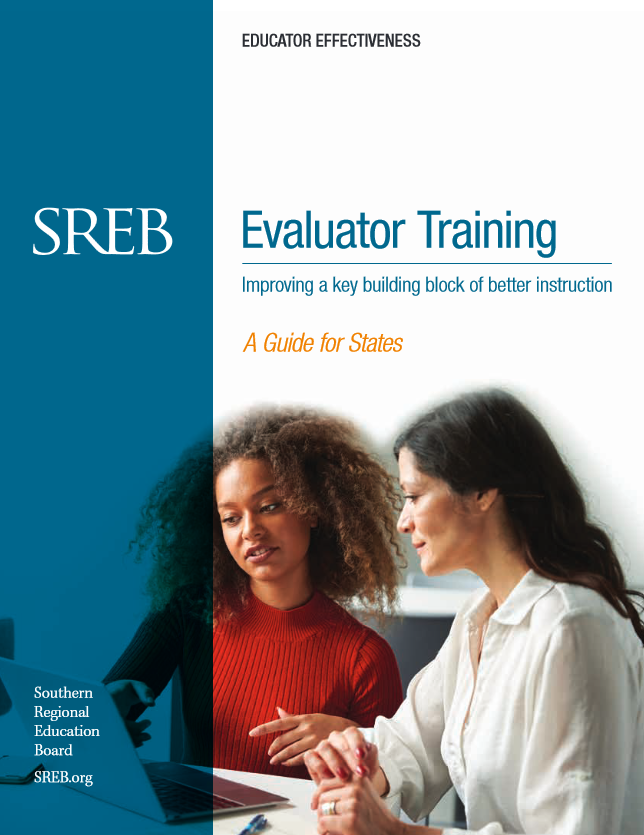Why Evaluator Training?
Our evaluation systems depend on the quality of feedback teachers receive
Over the last five years, SREB’s Educator Effectiveness team has interviewed hundreds of teachers and classroom observers, pored over evaluation data, convened state education agency staff, and read everything we could find about how to improve the systems of feedback that teachers receive. Over and over again, we ended up at the same place:
Classroom observers need training in how to understand what is happening in classrooms and how to communicate feedback in ways that teachers can hear and act upon.
I get it — recommending more rigorous training for classroom observers is not sexy. And it won’t solve all of our teacher evaluation challenges.
But the effectiveness and sustainability of our teacher evaluation systems absolutely depends on the quality of the feedback teachers receive from their observers. When that feedback is rigorous, reliable and relevant, teachers improve and students learn more — when it is not, teacher evaluation becomes just one more compliance procedure. At that point, you might as well not even spend the money on it. It wastes teachers’ time. It wastes administrators’ time. And most importantly, students are no better off.
You can use our report, Evaluator Training: A Guide for States, to look under the rock of observer training in your state. The report suggests a simple seven-part approach your state could take to improve the training classroom observers receive. It shows you how other states tackle the same challenges, from training requirements to assessment of observer competencies. You may not agree with all of the report’s recommendations, but they raise questions you will need to address one way or another.



